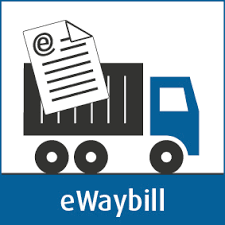- Business Startup
- Startup-Indian Entities
- Startup-Foreign Entities
- Business/Entity Conversion
- Business Registration
- Tax & ROC
- Yearly Tax Compliances
- Income Tax Return Filing
- ITR for Salaried Individuals/ Pensioner
- ITR for Capital Gain
- ITR for Companies
- ITR for House Property Income
- ITR for Income from Business
- ITR for Individuals having Share Trading
- ITR for NRIs and Resident with Foreign Income
- ITR for Partnership Firm/AOP/BOI
- ITR for Presumptive Income
- ITR for Speculation Business
- ITR for Trust, NGO and Companies
- Advisory on Tax Savings
- TDS Return Filings
- LTCG Filing and Advisory
- Income tax Notice Compliance
- Basic
- Standard
- Premium
- ITR for House Property Income and Other Source Income
- ITR for Capital Gain
- ITR for NRIs and Resident with Foreign Income
- ITR for Individuals having Share Trading or Casual Income
- ITR for Speculation Business
- ITR for Income from Business and Profession
- ITR for Presumptive Income
- ITR for Partnership Firm/AOP/BOI
- ITR for Companies
- ITR for Trust, NGO
- Advisory on Tax Savings
Yearly Tax Compliances
ITR for Salaried Individuals/ Pensioner
Income Tax Return Filing
- GST
- GST Registration (₹799)
- GST Accounting
- GST Return Filing
- GST Annual Return
- GST LUT Submission
- GST Taxpayer Registration
- GST Registration for Foreign Entity
- GST Registration Cancellation
- GST-Revocation of Cancellation
- GST Return Filing Packages
- E-way Bill Submission
- Ask an Expert-GST
GST Registration & Cancellation
- IPR
- Trademark
- Trademark Registration (₹5799)*
- Trademark (Individual) Registration
- Trademark with Logo Designers (Individual)
- Trademark with Logo Designers (Company)
- Trademark Objection Management
- Trademark Renewal
- Trademark Renewal (Company)
- MSME Compliance Trademark Registration
- Trademark Restoration
- Trademark Assignment
- Trademark Hearing
- Trademark Opposition
- Trademark Infringement
- Trademark Investigation
- Trademark Logo
- Copyright
- Copyright Registration
- Copyright Objection
- Computer Software Copyright
- Logo Copyright for Goods
- Songs Copyright
- Sound Recording Copyright
- Logo Copyright for Service
- Artistic Work/Painting Copyright
- Cinematography Copyright
- Copyright a Book
- Literature/Dramatic Copyright
- Music Notation Copyright
- Phrase/Slogan Copyright
- Symbol Copyright
- Patent
- Design
Trademark
- Trademark
- Compliance
- LLP Annual Compliance
- Winding up of Inactive LLP
- LLP Winding up by NCLT
Initial Compliance
General LLP Compliance
Changes in company
LLP Annual Compliance/ Closure
- Pay Roll
- Company
- Blog
BUSINESS ENTITIES CONVERSION
Minimize liability maximize profits, explore the new dimensions of business
One Person Company to Private Limited
One Person Company to Private Limited
- Overview
- Documents Required
- Process
One Person Company is a business entity run by a sole owner with the benefit of limited liability. One Person Company is a separate legal entity from its members, offering protection to its shareholders. Every One Person Company must nominate a member for the Directorial position in the MOA/AOA, in case of absence of the prime Director.
A private limited company or famously known as LTD is a privately held company. This implies that the business limits owner liability to its shares and limits the number of shareholders to 50. It also restricts shareholders from trading shares publicly.
Advantages of Private Limited Company
- The liability of shareholders is limited to their shares. Financial risks are a part of the business but to be able to minimize them and sustain the business progress is imperative. In an LTD, if due to any reason the company were to be shut the shareholders would not risk losing their personal assets.
- Risk of takeovers is minimized when two shareholders trade shares as the selling and buying of shares are possible only when both parties have given their consent.
- Private limited companies are incorporated; hence it continues to exist even if the owner dies.
- The capital or options of raising investment in the business is not restricted to one person, which is the case in Sole Proprietorship.
- Private limited companies pay corporate tax on their profits. Dividends that the shareholders receive are not taxed. Taxes are determined as per their personal income tax rate.
- Private limited companies can attract high-caliber employees that offer great help in the growth of the company.
Frequently Asked Questions
What is to be done by the company after converting OPC to private limited company?
After the OPC is converted into a Private Limited Company, it is obligatory for the company to increase its paid-up share capital to ₹ 50 Lakh or the annual turnover to ₹ 2 Crore or more. If the company fails to comply with these provisions, it shall covert back itself to an OPC by passing a special resolution.
What are the conditions for converting OPC to a private limited company?
The OPC must convert itself into a Private Company in case of the following situations:
– If the paid-up share capital of the OPC hits more than ₹ 50 lakh.
– If the annual turnover exceeds ₹ 2 crores consecutively for the last three (3) years.
Whether the OPC can voluntarily proceed for its conversion?
Yes, OPC may voluntarily convert itself into a Private Company or Public Company subject to certain condition. The OPC may apply for voluntary conversion only if a period of two years has been passed since its incorporation.
Can an OPC be converted or incorporated as a non profit organization?
NO, an OPC cannot be incorporated as or converted into a company for non-profit, charitable purpose, and it cannot carry out non-banking, financial, or investment activities including investment in securities of any corporate body.
What is the effect after conversion of OPC to a private limited company on the liabilities of the previous company?
After the conversion, the liabilities, debts or obligation of the company shall not be affected in any way. Hence, the company shall be liable for all its previous obligations.
Documents required to convert One Person Company to Private Limited Company
Mandatory Conversion: The conversion of One Person Company to Private Limited Company becomes mandatory when
- The paid capital of a One Person Company exceeds Rs.50 lakhs
- Increase the average annual turnover during the period of three consecutive financial years is Rs.2 crores.
The following documents are then required for the conversion.
1. E-Form INC 5 – Copy of the Resolution is needed to be filed with Registrar of Companies with the following attachments:
- A certified true copy of Board Resolution
- The latest balance sheet with other financial statements
- Certificate from a Chartered Accountant for calculation of average turnover during the relevant period
2. E-Form INC 6 – Application for the conversion of Private Limited Company to One Person Company with the following necessary attachments:
- List of all members and creditors
- Latest balance sheet
- Letter of ‘No Objection’ from the members and creditors
- Letter of Consent from the Directors by way of affidavit
Voluntary Conversion: The conversion of One Person Company to Private Limited Company can be voluntarily done when the One Person Company completes two years from the date of incorporation.
The following documents are then required for the conversion.
1. E-Form MGT 14 – Copy of the Special Resolution is needed to be filed with Registrar of Companies with the following attachments:
- Notice of Extra General Meeting (EGM), which is held to gain the approval of Directors for the conversion of the Private Limited Company to One Person Company.
- A certified true copy of Special Resolution
- Altered Memorandum of Association
- Altered Articles of Association
- A certified true copy of Board Resolution is optional
2. E-Form INC 6 – Application for the conversion of Private Limited Company to One Person Company with the following necessary attachments:
- List of all members and creditors
- Latest balance sheet
- Letter of ‘No Objection’ from the members and creditors
- Letter of Consent from the Directors by way of affidavit
One Person Company to Private Limited Registration
₹22,699.00
One Person Company to Private Limited in just 10 Days
Never let the businessman see down by giving your business a shining name with One Person Company to Private Limited registration. It is extremely easy to start and run!
Why choose Company registration in INDIA ?
-
Shields from personal liability and protects from other risks and losses.
-
A registered company makes it genuine and increases the authenticity of your business.
-
Procures bank credits and good investment from reliable investors with ease.
-
Offers liability protection to protect your company’s assets
-
Greater capital contribution leading to greater stability of business
-
Increases the potential to grow big and expand the business


























